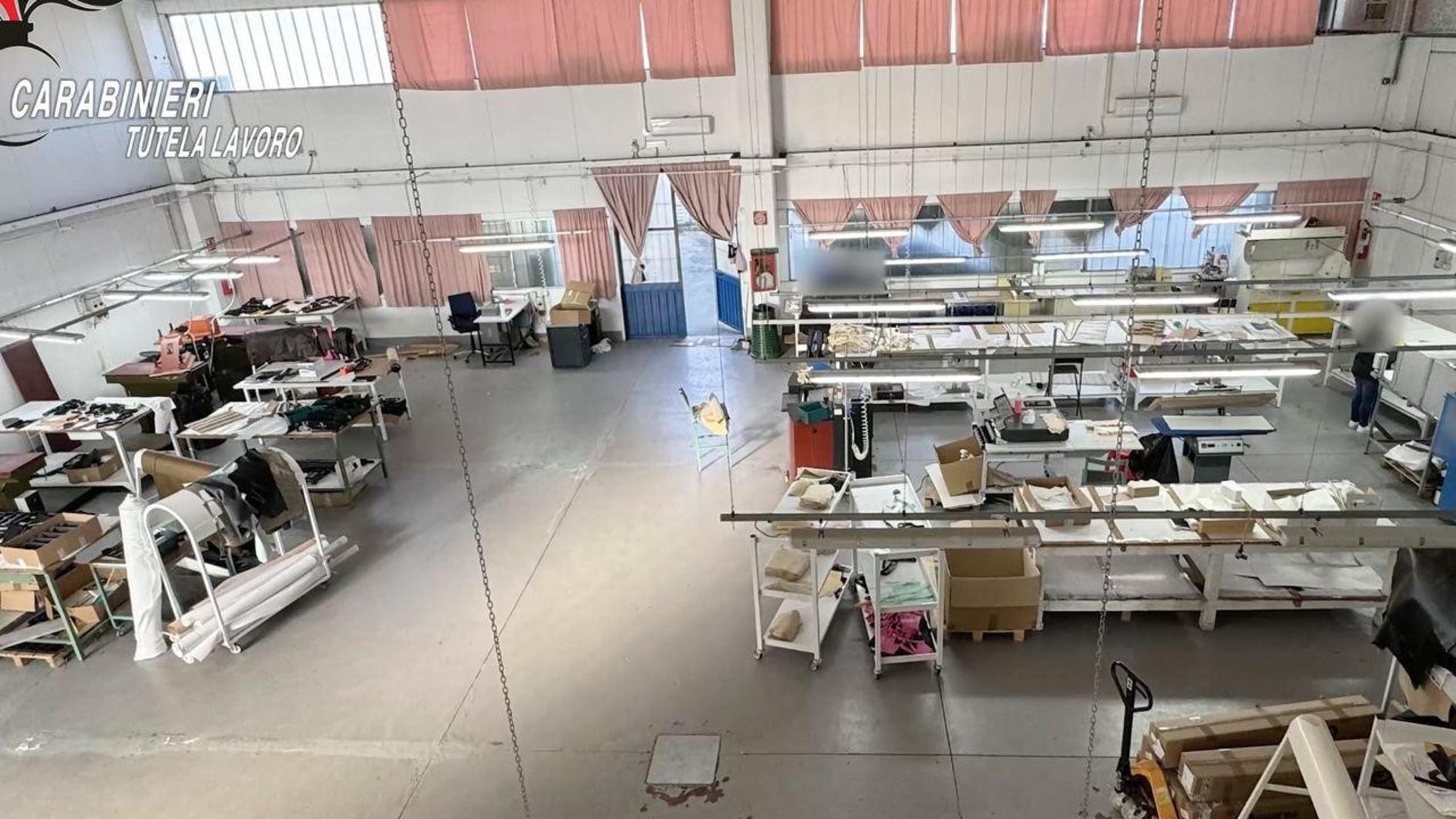
In this frame grab taken from a footage released, Friday, April 5, 2024, by the Italian Carabinieri, paramilitary police press office, showing a workshop where leathergoods were being made in northern Italy. Underpaid and exploited Chinese workers working for an unauthorized subcontractor made handbags and accessories for the Giorgio Armani fashion house that was contracted through a subsidiary that did not properly monitor conditions, Italian police said in a statement Friday.
Italy's competition watchdog said on Wednesday that it was investigating the luxury fashion groups Armani and Dior over allegations they used supplies from firms that underpaid and overworked their staff.
As part of the probe, the AGCM watchdog and the Guardia di Finanza financial police on July 16 carried out inspections at the headquarters of Giorgio Armani SpA and G.A. Operations SpA as well as Christian Dior Italia Srl, the watchdog said.
In a statement, it said an investigation had been opened into alleged unfair commercial practices.
"In some cases the companies may have used supplies from workshops employing workers who would receive inadequate wages," it said.
The staff are also alleged to have worked "hours in excess of the legal limits and in inadequate health and safety conditions, in contrast to the boasted levels of production excellence," it said.
The watchdog is also looking into possible violations of the consumer code in the way some companies in the Armani and Dior groups promoted and sold clothes and accessories.
"In both cases, the companies may have issued untrue statements about their ethics and social responsibility, in particular with regard to working conditions and compliance with the law by their suppliers," it said.
"Moreover, the companies emphasized craftsmanship and quality. However, in order to make certain articles and clothing accessories the companies allegedly used supplies from workshops and factories employing workers who would receive inadequate wages," it added.
"In addition, such workers would work hours in excess of the legal limits and in inadequate health and safety conditions, in contrast to the production excellence levels the companies pride themselves."